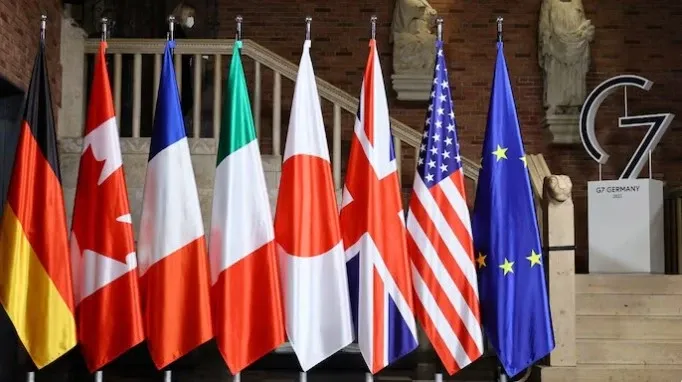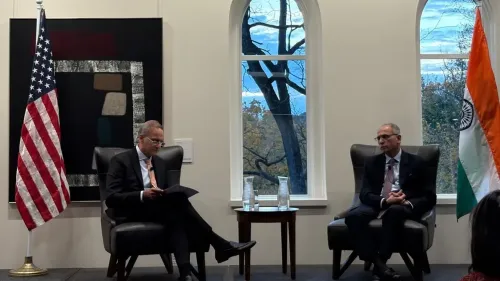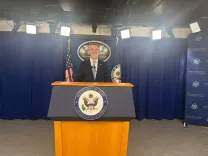What is the G7's Stance on the Recent Pahalgam Terror Attack?

Synopsis
Key Takeaways
- G7 condemns the terrorist attack in Pahalgam.
- Call for de-escalation and dialogue between India and Pakistan.
- Concerns for civilian safety amidst rising tensions.
- Indian armed forces are on a high alert due to drone activity.
- Next G7 Leaders' Summit to be held in Canada in 2025.
New Delhi, May 10 (NationPress) The G7 nations have called for an urgent need for de-escalation amidst escalating tensions between India and Pakistan following reported missile strikes.
In a statement, the G7 Foreign Ministers—including representatives from Canada, France, Germany, Italy, Japan, the United Kingdom, the United States, and the High Representative of the European Union—strongly denounced the outrageous terrorist attack that occurred in Pahalgam on April 22. They emphasized the necessity for maximum restraint from both nations.
“Any further military escalation poses a significant risk to regional stability. We are particularly worried about the safety of civilians on both sides,” the statement added.
The G7 urged for immediate dialogue between the two countries to work towards a peaceful resolution and expressed their commitment to closely monitor the situation while supporting a quick and sustainable diplomatic solution.
Canada is set to assume the G7 Presidency in 2025, with the upcoming G7 Leaders' Summit scheduled for Kananaskis, Alberta from June 15 to 17.
In related developments, India's Ministry of Defence reported sightings of drones at 26 locations along the International Border and the Line of Control (LoC) with Pakistan, including suspected armed drones.
These locations span Baramulla, Srinagar, Avantipora, Nagrota, Jammu, Ferozpur, Pathankot, Fazilka, Lalgarh Jatta, Jaisalmer, Barmer, Bhuj, Kuarbet, and Lakhi Nala.
A spokesperson for the Ministry stated, “Unfortunately, an armed drone targeted a civilian area in Ferozpur, resulting in injuries to local residents. The injured have received medical care, and security forces have secured the area.”
The Indian armed forces are currently on high alert, actively tracking and addressing aerial threats using counter-drone measures. The situation is being monitored diligently, with prompt actions taken whenever necessary.
The Ministry urged residents, especially those in border regions, to remain indoors, minimize unnecessary movements, and adhere strictly to safety directives from local authorities, stressing that while there is no cause for alarm, increased vigilance and caution are paramount.
On Friday, Prime Minister Narendra Modi convened a high-level meeting with Defence Minister Rajnath Singh, NSA Ajit Doval, and the Chiefs of all Armed Forces.









